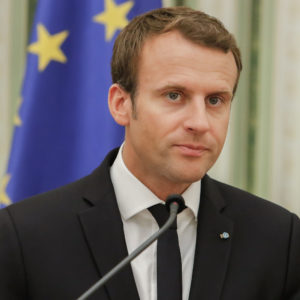The opportunity for a bold leap toward EU integration is probably better today than at any time since the fall of the Berlin Wall. In part because France re-elected President Emmanuel Macron, perhaps the most pro-European president in the country’s history.
After Russia invaded Ukraine, Denmark quickly withdrew from the EU’s Common Defense Policy. Poland also sees more clearly than ever what it may lose with the weakness of Europe. Therefore, geopolitical conditions are especially favorable for profound changes.
Moreover, the COVID-19 crisis has clarified international economic dependence and the need for solidarity in Europe. A war of aggression in Ukraine creates a sense of urgency not seen since the eurozone debt crisis. Meanwhile, growing concerns about the United States heading for another Trump-like president have finally made the EU aware of the desperate reality.
After France’s six-month presidency of the EU and while Macron is starting a new presidential term, the question that may be raised is what caused the gap between Macron’s ambitious European program and the existing reality and why most of his efforts in his first term end in failure.
Macron’s inflammatory statement in 2019 that NATO was brain-dead made it almost impossible to create a new European security structure. In addition, a joint Financial Times op-ed Macron wrote with Italian Prime Minister Mario Draghi in December 2021 calling for a new form of EU economic governance was not even discussed at the lavish Versailles summit in March, and no proposal to reform Europe’s financial rules was made.
Macron’s call for a conference on the future of Europe, which he designed during the 2019 European election campaign as a launch pad for deep institutional reforms, was quickly undermined by the European Parliament, and his bold attempt to revive it on May 9 with a speech in Strasbourg faced strong resistance. Consequently, within days, Macron faced opposition from 19 of the 27 countries for ideas that could have won majority support with more preparation and sophisticated diplomacy. With this failure, the EU finds itself without a real plan to strengthen its structure and without a real plan to solidify its commitment to its neighborhood.
It is perhaps worth noting here that the failure of Macron’s European policy suffers from three primary diseases: vagueness, unilateralism, and selfishness.
France is fundamentally ambiguous about critical aspects of its European vision. While Germany intends to build the core of a federal state for the EU, Macron seems to believe that saying federal is too costly at home and too idealistic abroad. The expansion of qualified majority voting, which France often calls for, prevents smaller member states of the EU from vetoing issues such as fiscal or tax policies. But France rarely explains whether it is ready to give up its right of veto in essential fields such as foreign or defense policy and whether it is prepared to transfer executive powers to the European Commission and expand the powers of the Parliament.
Macron has often preferred to go it alone to build a coalition. In a sense, France’s European policy starts and stops with him. Indeed, his government, diplomatic service, and critical civil societies across the EU could be natural amplifiers of his views, but they are often overshadowed. And his approach is rarely to build a coalition organized around common goals.
Macron’s approach to the EU is often self-serving and can easily be confused with a Napoleonic attempt to remake Europe in France’s image and interests. This is perhaps most evident in foreign policy and defense, where Macron’s bold ambition for an independent Europe is seen as an attempt by a declining power to use Europe’s power to maintain his eroding influence in foreign policy.
In general, it can be argued that the behavior and policies of Emmanuel Macron have not only led to increasing isolation and forced France to present failures as successes but also made Europe face a fundamental challenge on the path of Eurozone reform. However, France is trying to portray the upcoming meeting of European heads of state as a fundamental step toward a genuine European political community when the forum apparently has no real plan.
Therefore, in the current situation where Europe needs integration more than ever, the lack of a practical agenda, the war on the borders of Europe and the costs of energy transmission on the one hand, and Macron’s wrong policies, on the other hand, may not only hinder the reform of the Eurozone but also fuel the division and paralysis of the EU.

